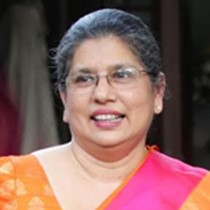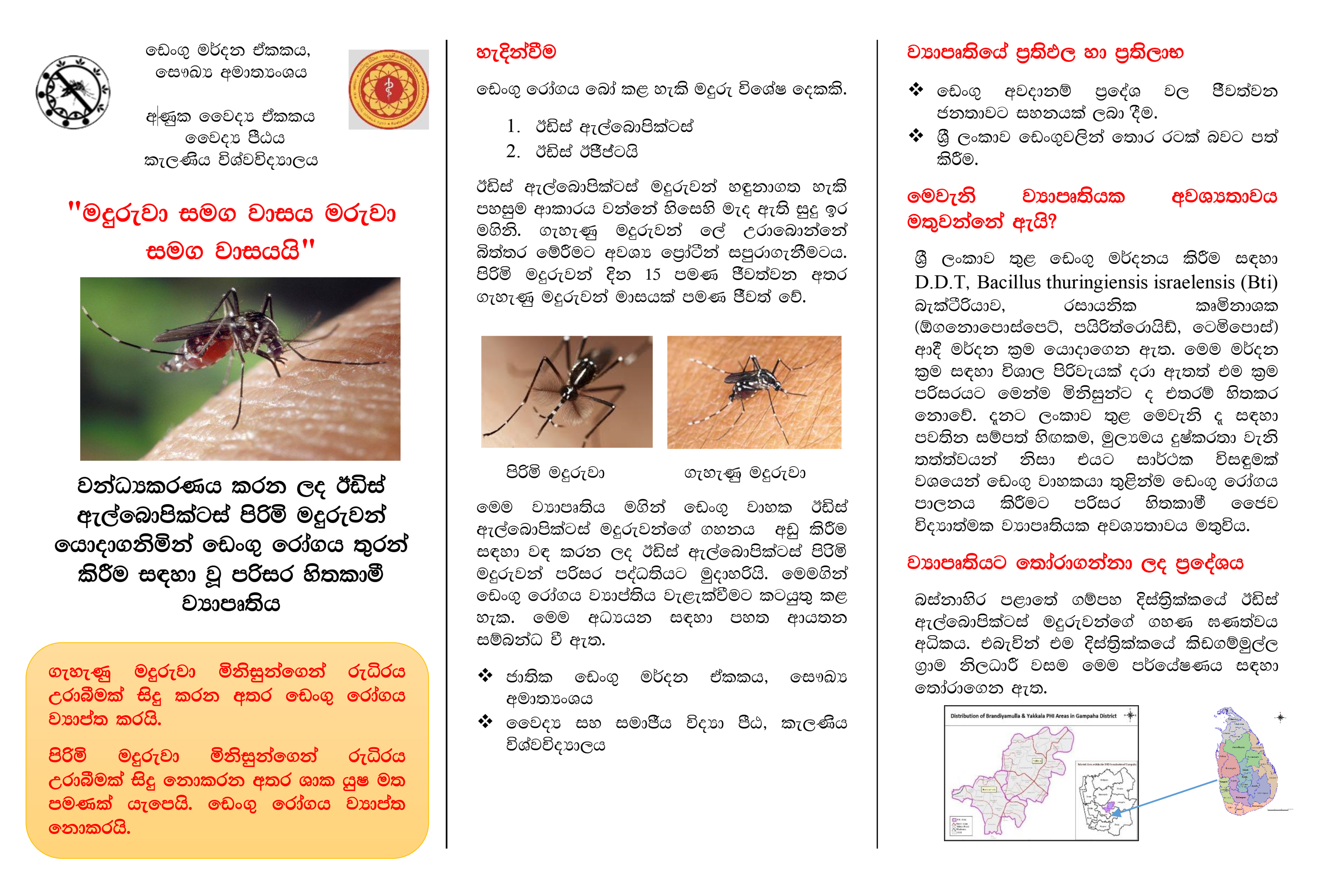Pilot field application of Sterile Insect Technique (SIT) for integrated control of dengue vector mosquitoes

Senior Prof. Nilanthi de Silva

Dr. Aruna Jayasekara
Message from Director National Dengue Control Unit, Ministry of Health, Sri Lanka
National Dengue Control Unit (NDCU) of the Ministry of Health is the focal point for coordinating dengue prevention and control activities with other health and non-health stakeholders. Since it’s established in 2005, the NDCU has developed strategies and implemented significant amount of activities based on Integrated Vector Management to control and prevention dengue in Sri Lanka.
Today, with the improvement of the early diagnosis and clinical management of dengue, Sri Lanka has reached its lowest case fatality rate of 0.11 in 2020, despite the frequent outbreaks, increase in the endemicity level and the proportion of severe dengue fever.
As such, to bring down the high endemicity level and to minimize the outbreaks with sustainable vector control activities become the top priority at present.
It is a mandate of NDCU to facilitate, link and conduct operational research in the prevention and management of dengue infection. National Dengue Control unit already link with national and international universities for implementation of newest vector control methods as pilot projects in identified dengue high endemic localities.
It is my great pleasure to thank Prof. Manaka Hapugoda and team of Molecular Medicine Unit, Faculty of Medicine, University of Kelaniya, linking with NDCU to conduct Sterile Insect Technology (SIT) for integrated control of dengue vector mosquito in a selected site in the District of Gampaha as a pilot implementation.
National Dengue Control Unit is looking forward to a successful outcome of this new technique for public health, which can be used to control dengue vector in Sri Lanka in near future.
Dr. Aruna Jayasekara
Director
National Dengue Control Unit
Ministry of Health
Main institution-University of Kelaniya
Faculty of Medicine,
Molecular Medicine Unit
Prof. Menaka Hapugoda,
Principal Investigator
Prof. Nilmini Gunawardene,
Co-investigator
Dr. Tharaka Ranathunga,
Co-investigator
Prof. Aresha Manamperi,
Facilitator
Faculty of Social Sciences
Prof. K. Karunathilake
Partner 1. National Dengue Control Unit
Dr. A.N. Jayasekera,
Director
Dr. Indika Weerasinghe
Partner 2. Anti-Malaria Campaign, Head Office
Dr. Prasad Ranaweera,
Director
Mrs. Jeevanie Harishchandra,
Entomologist
Funding
Technical co-operation – International Atomic Energy Agency (IAEA SRL 5/047 and RAS 50-82)
Funding - National Research Council (TO 14/04)



